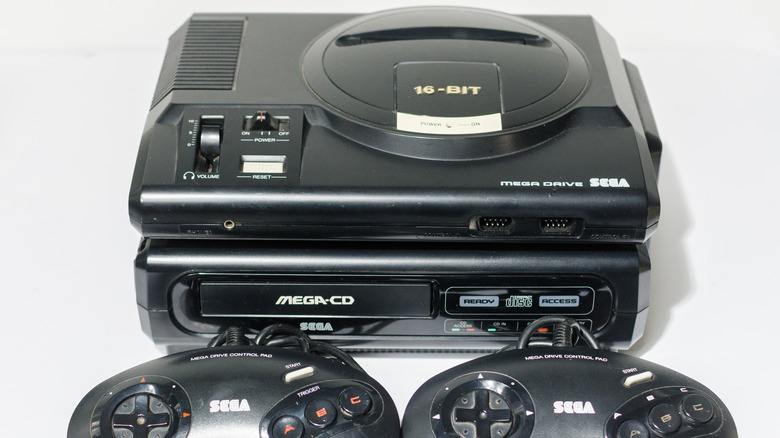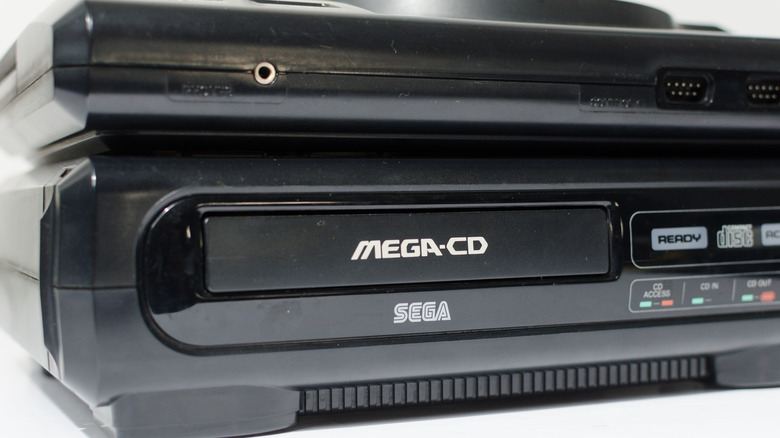The Real Reason The Sega CD Flopped
The Sega Genesis, also known as the Mega Drive outside of North America, was a major success for Sega. It sold over 30 million units, allowing Sega to make a name for itself within the video game world, according to Business Insider. However, the company's downfall was on the horizon, and a small add-on device to their most popular console served as the catalyst for its demise.
The Sega CD was developed during a time when many other companies were also trying to develop CD-ROM support, including its direct competitor, Nintendo. It were reportedly working with Sony to develop this technology for the Super Nintendo console, and the outcome was the Super NES CD-ROM, dubbed the "Nintendo PlayStation" (via BBC). Eyes were on Sega to make a contribution to the CD-ROM craze, so it eventually added the Sega CD and released it in 1991.
Why the add-on was a mistake
One of the biggest reasons the Sega CD failed was because it was an add-on device. Since consumers would already need a Genesis to use the Sega CD, the market for the product was hamstrung from the start (via Business Insider). There wasn't much interest in the product, because it didn't really add anything new to the existing system but storage space and the ability to play FMV or full-motion video games (via IGN).
FMV games were another big factor in the demise of not only the Sega CD, but Sega as a whole. This was during a time when the legal system started paying attention to the violence in video games, which eventually led to the creation of the Entertainment Software Rating Board, or ESRB. One game that contributed to this was Night Trap, released on the Sega CD as an FMV game. It was scrutinized for its depiction of women being targeted by killers and was evaluated by the U.S. Senate Judiciary and Government Affairs Committee in 1993. Following, the game was pulled from store shelves (via NCAC).
The price point of the Sega CD was also too high for what it delivered, at $300, according to IGN. The other factors combined caused a lack of interest in the Sega CD, which was discontinued in 1996.

